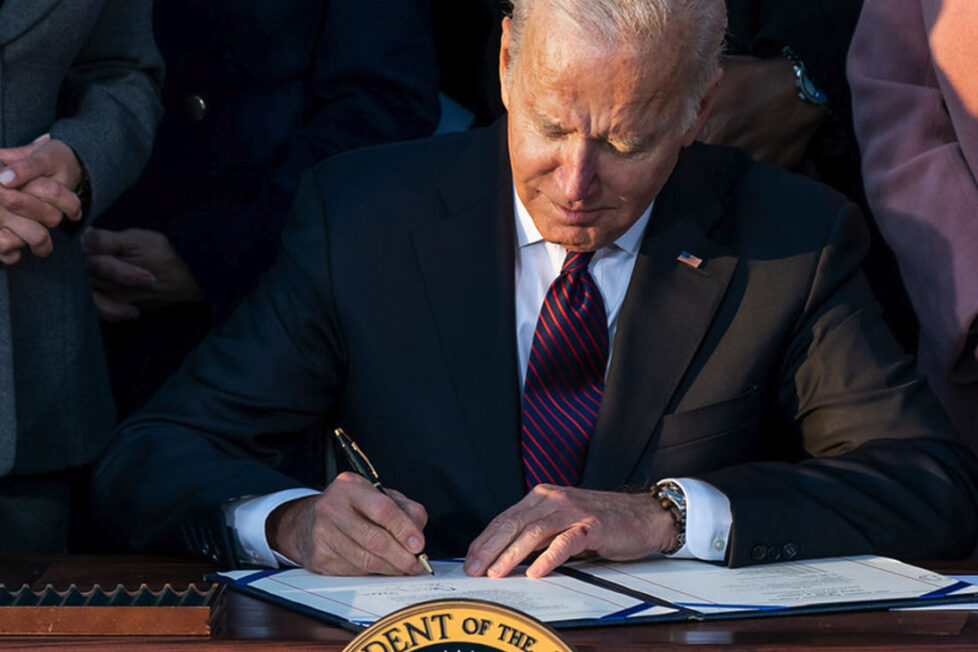Biden blasts Supreme Court’s affirmative action decision

By: Stacy M. Brown / NNPA
The United States Supreme Court has sent shockwaves through the nation’s education system by departing from decades of precedent that have fostered diversity and inclusivity in colleges and universities.
The ruling has ignited concerns about the future of creating vibrant learning environments where students can grow and learn from one another.
President Biden, a vocal advocate for equal opportunity in education, expressed his disappointment with the Supreme Court’s decision.
He emphasized that while talent and hard work are abundant across the country, equal opportunity remains elusive.
The President urged that this decision not be the final say in the matter and called on colleges and universities to lead in expanding access to educational opportunities for all students.
The President highlighted diversity’s strength to educational institutions and the entire nation.
He emphasized that when colleges and universities embrace racial diversity, they tap into the full range of talent present in the country.
President Biden urged institutions of higher learning to consider the adversities that students have overcome, including financial struggles, upbringing, high school attendance, and personal experiences of hardship or discrimination, including racial discrimination.
By considering these factors during the admissions process, colleges and universities can recognize and value the resilience and determination shown by aspiring students in the face of challenges.
To support colleges and universities in this pursuit, the Biden-Harris Administration has pledged to clarify admissions practices and additional programs within the next 45 days.
This guidance will help institutions prepare for the upcoming application cycle.
The administration also plans to convene a National Summit on Educational Opportunity and release a report outlining strategies to increase diversity and expand educational opportunities.
Transparency in college admissions and enrollment practices will be promoted, and states will receive assistance in analyzing data to enhance access to education for underserved communities.
These measures build upon the Biden-Harris Administration’s ongoing efforts to ensure equal access to higher education.
Previous accomplishments include:
• Securing historic increases in Pell Grants.
• Prioritizing college completion.
• Supporting historically Black colleges and universities (HBCUs), Tribal colleges, and minority-serving institutions.
Additionally, the administration is addressing issues in the student loan system to provide relief to borrowers burdened by loans.
Although the affirmative action decision threatens to undermine progress in advancing racial equity and civil rights, the Biden-Harris Administration vows that it remains committed to fighting against this setback.
In the wake of the Court’s decision, Biden pledged to “safeguard the hard-earned achievements and preserve opportunities for all Americans to pursue higher education.”
Biden said the battle for diversity and equal opportunity in higher education continues.
“Because affirmative action is so misunderstood, I want to make sure everybody is clear about what the law has been and what it has not been, until today,” the President stated.
“Many people wrongly believe that affirmative action allows unqualified students to be admitted ahead of qualified students. This is not how college admissions work.”
The President continued:
“Rather, colleges set out standards for admission, and every student — every student has to meet those standards. Then, and only then, after first meeting the qualifications required by the school, do colleges look at other factors in addition to their grades, such as race. “The way it works in practice is this: Colleges first establish a qualified pool of candidates based on meeting certain grades, test scores, and other criteria. Then, and only then, and it’s from this pool of applicants, all of whom have already met the school’s standards, that the class is chosen, after weighing a wide range of factors, among them being race.”
Finally, the President said he believes the nation’s colleges are more robust when racially diverse.
“Our nation is stronger because we are tapping into the full range of talent in this nation,” he asserted. “I also believe that while talent, creativity, and hard work are everywhere across this country, not equal opportunity. It is not everywhere across this country. We cannot let this decision be the last word. I want to emphasize: We cannot let this decision be the last word. While the Court can render a decision, it cannot change what America stands for.”
